Joe Biden announces plans to tackle climate change
- Published
- comments
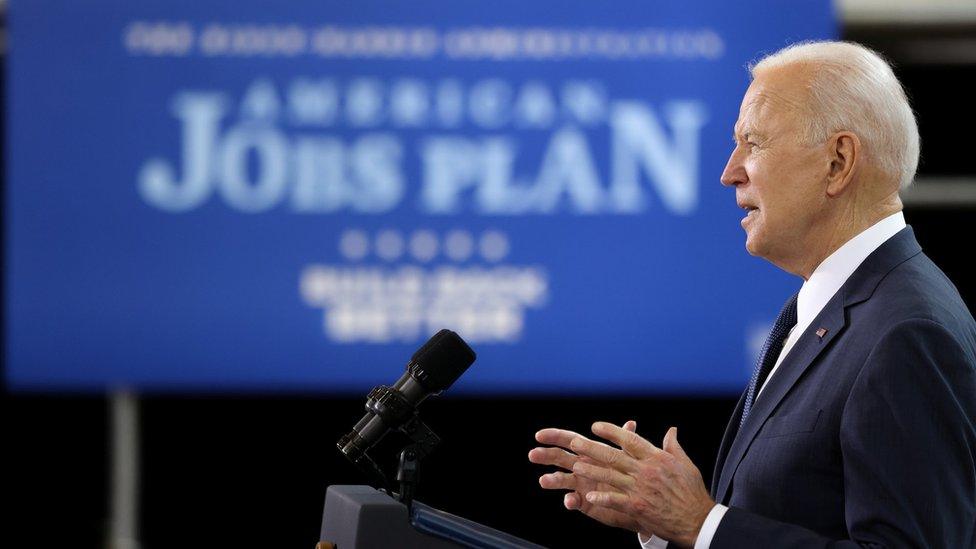
Joe Biden has announced his big plan to help rebuild America and its economy.
The US President has laid out his building and infrastructure priorities which includes billions in spending to boost the use of electric cars and make the US more prepared for dealing with climate disasters.
If it gets signed into law, it will be one the US's largest efforts ever to cut greenhouse gas emissions and help the country get to net-zero carbon emissions by 2050.
Some climate groups have welcomed his proposals while other campaigners have complained that they don't go far enough.
What US kids think about Biden's plan on climate change
Tackling climate change was a big part of Jo Biden's election campaign when he was trying to defeat Donald Trump in the 2020 election.
He suggested a $2 trillion plan that aimed to achieve carbon-free power generation by 2035.
One of his first acts was to re-join the Paris Climate Change Agreement, after Donald Trump withdrew the US from it.
Now he's announced his plans on how he's going to do this, saying: "If we act now, in 50 years people are going to look back and say: 'This was the moment that America won the future'.
His plan to spend money on rebuilding and improving America is called the American Jobs Plan and includes lots of measures - many of them not focused on climate change - but these are the main green ideas.
Power up for electric cars
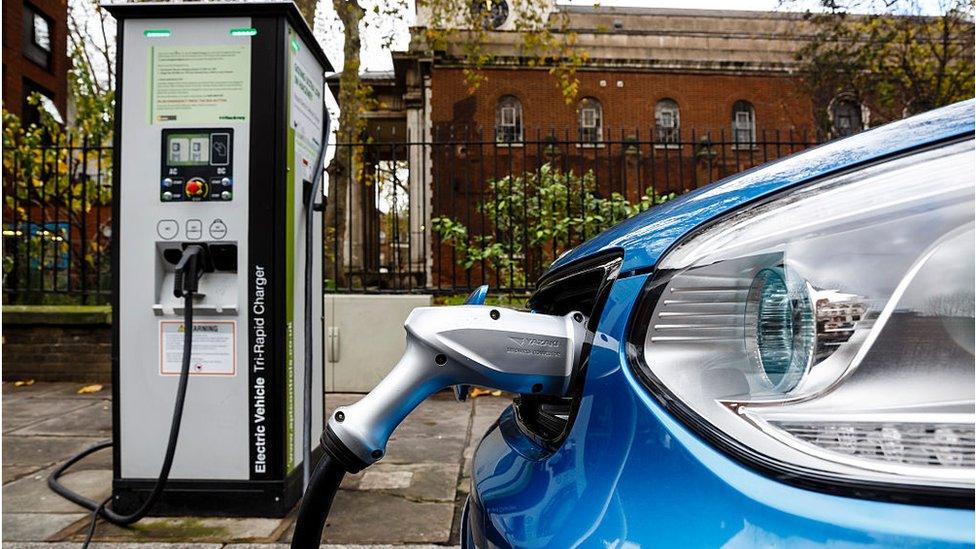
Electric cars only make up about two in every 100 new car sales in the U.S.
The initiatives involve giving encouragement to Americans to buy electric cars and to pay to install half a million extra charging stations across the country by 2030.
He's also calling for more electric school buses in a quest to drive motorists away from petrol-powered transport.
But unlike the UK, there's no target to stop sales of new petrol and diesel vehicles.
Boost for renewables
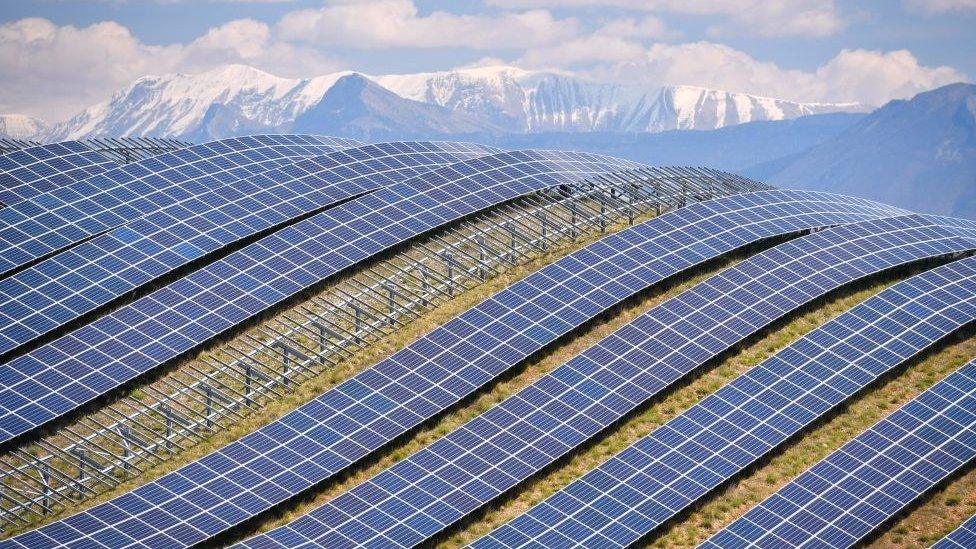
The plan also proposes to update the country's electric supply grid and make it more resilient to climate problems - such as the recent winter storm that affected Texas and cut the power there.
As global temperatures rise, the plan aims to update aging roads and bridges to be better able to deal with droughts, floods and wildfires.
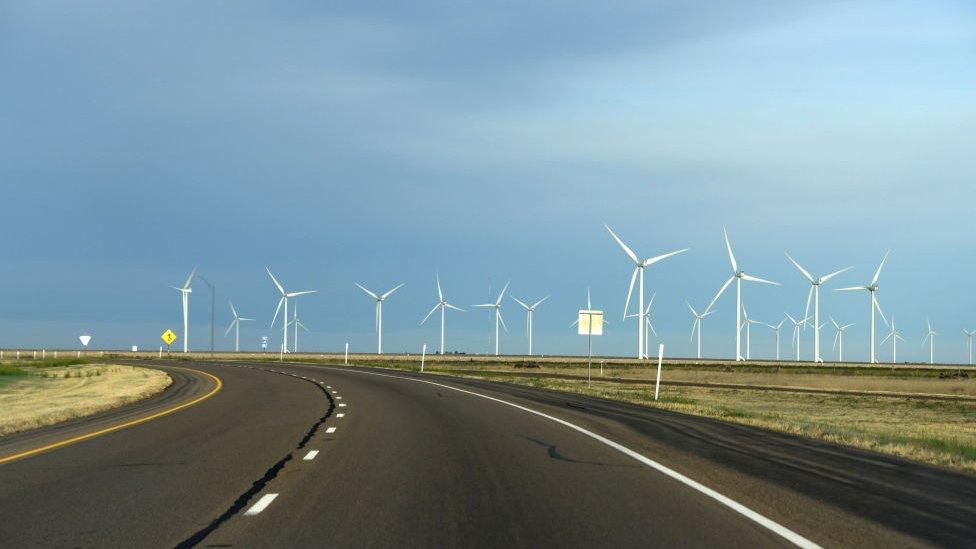
It also aims to help people make their homes more energy efficient and proposes a law to make sure that a portion of US electricity comes from zero-carbon renewable sources like wind and solar power.
It also proposes replacing all the country's lead pipes and updating water systems to ensure drinking water is safe.
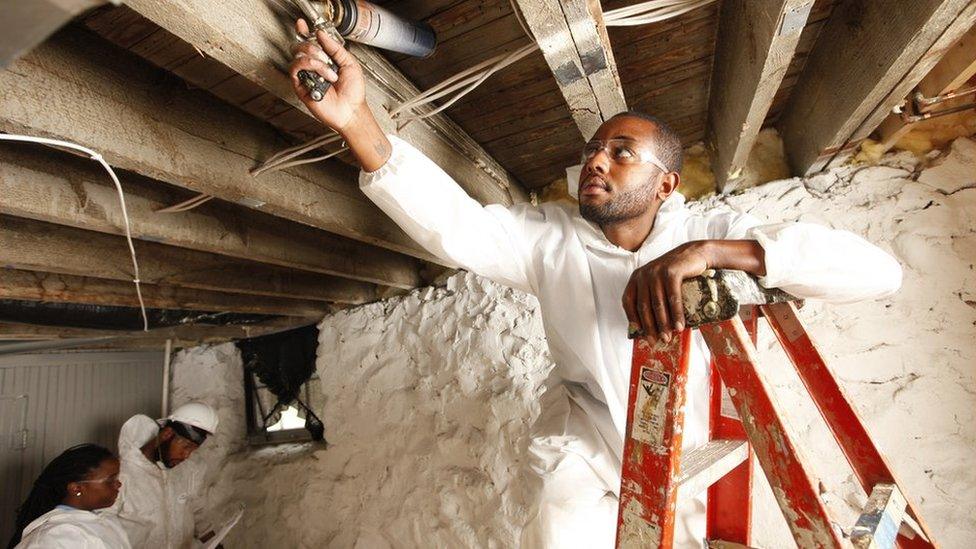
Civic Works runs programmes focused on job training for green careers in Baltimore, MD
The president also says he wants to spend money on tech to help tackle climate change and create jobs - in areas such as carbon capture and storage, hydrogen power and offshore wind, and electric vehicles.
It suggests using people who work in fossil fuel industries like coal and oil mining to safely close the well and mines to avoid leaks - and wants to create a "Civilian Climate Corps" to employ people to help improve the environment in land affected by industry
How have people reacted?
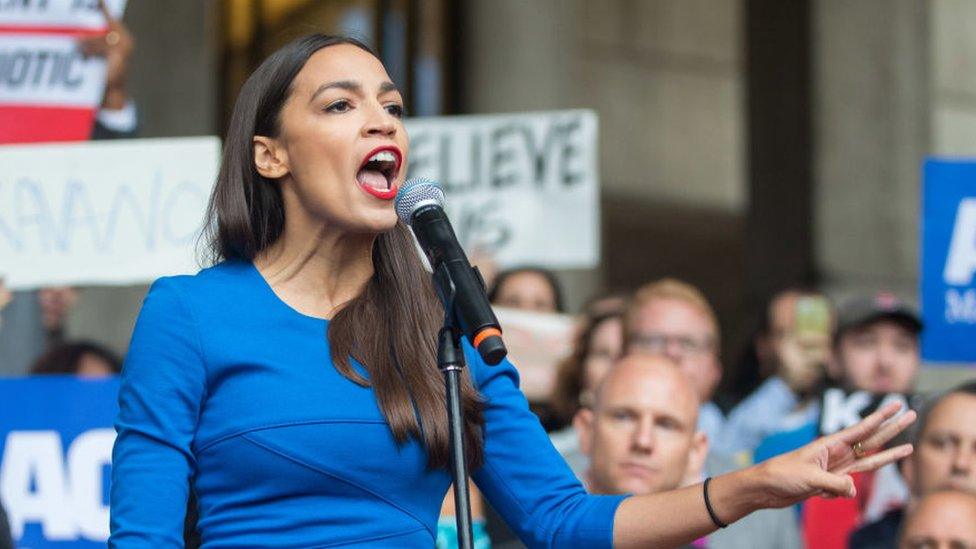
Democrat congresswoman Alexandria Ocasio-Cortez says the plans don't go far enough
While some people have praised Joe Biden's plans, others have said they don't go far enough.
Some environmental groups welcomed it as a boost for clean energy and aiming to tackle the threats of worsening climate disasters.
But others, such as the Centre for Biological Diversity, said the plan falls short on the president's promises and some politicians on his own side have also complained.
On social media, Democrat congresswoman Alexandria Ocasio-Cortez shared the details of the plan but said: "This is not nearly enough."
To become law the plan has to be approved by Congress.
